Are you looking to establish a solid foundation for your consultancy partnership? A well-crafted retainer agreement can be the key to fostering a successful and ongoing collaboration between you and your clients. This template will walk you through the essential elements that ensure clarity and mutual understanding in your consultancy services. Ready to learn how to create an effective agreement? Let's dive in!
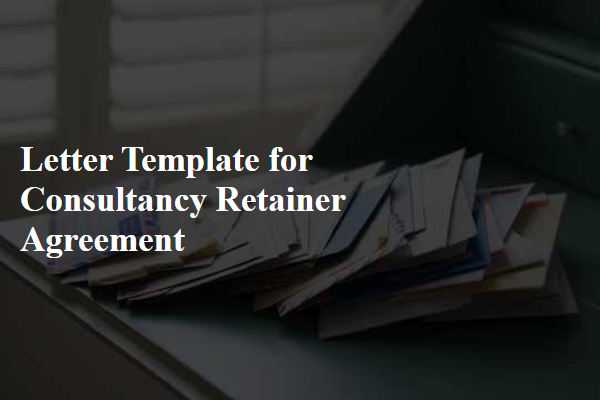
Scope of Services
The consultancy retainer agreement outlines the scope of services, which encompasses a detailed description of tasks and responsibilities assigned to the consultant. These services may include strategic planning (analyzing business direction), project management (overseeing project execution), market analysis (evaluating industry trends), and ongoing support (providing expert advice). Regular updates (weekly or monthly reports) will be delivered to ensure alignment with client goals. Locations such as the client's headquarters (identified as City Name) may require on-site visits, while others will utilize virtual communication platforms for remote collaboration. Specific timelines (project milestones) and performance metrics (KPIs to assess effectiveness) will also be documented to track progress and ensure accountability throughout the consultancy period.
Payment Terms and Fees
A consultancy retainer agreement typically outlines crucial details regarding payment terms and fees for services rendered. The fees might be structured as a fixed monthly retainer, for instance, $5,000 per month for ongoing advisory services, or upon hourly rates, commonly around $150 per hour for consultations. Payment terms usually stipulate that invoices are to be issued at the beginning of each month, with payment due within 30 days to ensure smooth financial transactions. Late payments might incur a fee of 1.5% per month, promoting timely payments. Additionally, it's important to mention any provisions for adjustments in fees based on project scope changes, typically requiring a written agreement. Such details create a clear framework for financial expectations in the consultancy relationship.
Duration and Termination
A consultancy retainer agreement typically outlines the duration of the consultancy services and the conditions under which the agreement can be terminated by either party. The duration section specifies the length of the engagement, which may be stated in months or years, providing clarity on the expected commitment from both the consultant and the client. The termination section details the circumstances under which either party may end the agreement, including requirements for written notice or conditions that might warrant immediate termination, such as breach of contract or failure to perform. These provisions ensure that there is a mutual understanding of the length and exit strategy for the consultancy relationship, safeguarding both parties' interests.
Confidentiality and Data Protection
Confidentiality and Data Protection clauses are critical in a consultancy retainer agreement, particularly concerning sensitive information shared between parties. Confidentiality ensures that all proprietary data, including trade secrets, client lists, and business strategies, remain undisclosed to unauthorized individuals or entities. The Data Protection guidelines should adhere to regulations such as the General Data Protection Regulation (GDPR), which specifies how personal data can be collected, stored, and processed. Violations can result in significant fines (up to 20 million euros or 4% of annual global turnover, whichever is higher) and legal repercussions. A clear outline of responsibilities, including the secure handling of data, mandatory reporting of breaches, and the duration of confidentiality post-agreement, fortifies mutual trust and compliance. Additionally, specifying the procedures for data disposal at the end of the consultancy engagement is essential for safeguarding sensitive information.
Limitation of Liability and Indemnity
Consultancy retainers often include a Limitation of Liability and Indemnity clause to clarify the extent of the consultant's responsibility. This clause typically specifies that the consultant's liability for any claims arising from the engagement is limited to the fees paid under the agreement, often capping it at a specific amount, such as $50,000 or the total fees paid. The clause also emphasizes that the consultant shall not be held liable for indirect, consequential, or incidental damages, which can include loss of profits, data losses, or business interruptions. Additionally, the indemnity provision usually requires the client to indemnify the consultant against any third-party claims that arise due to the client's use of the consultant's services, reinforcing the idea that the consultant's role is limited to the scope defined in the agreement.
Letter Template For Consultancy Retainer Agreement Samples
Letter template of consultancy retainer agreement for marketing services
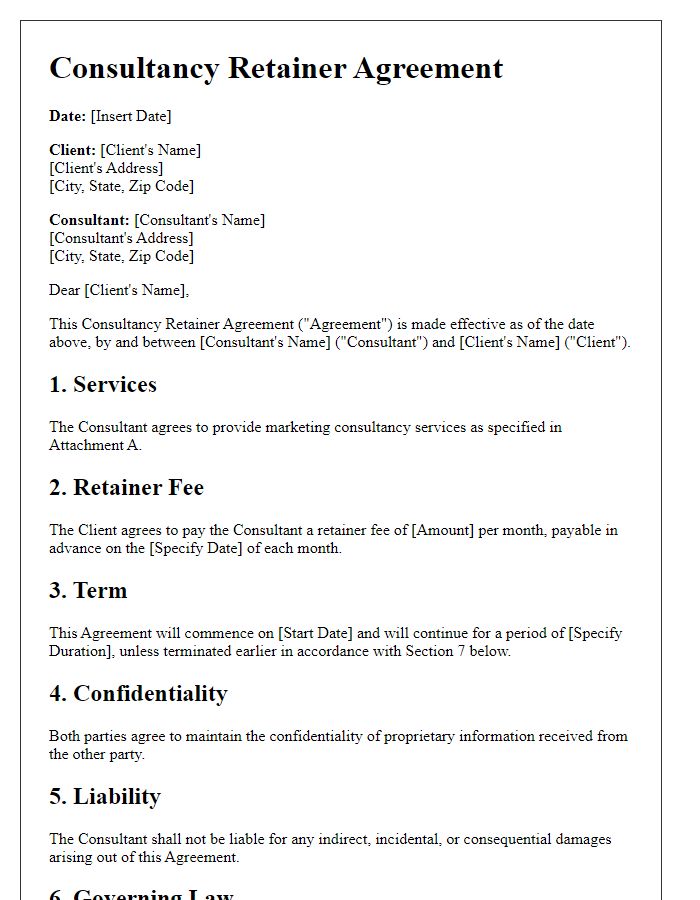
Letter template of consultancy retainer agreement for financial advisory
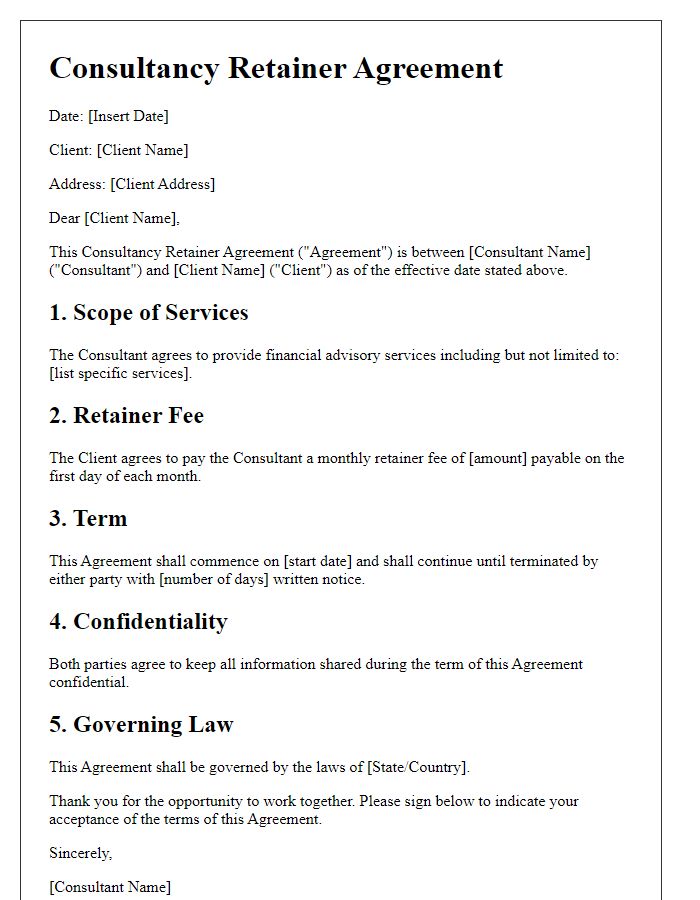
Letter template of consultancy retainer agreement for project management
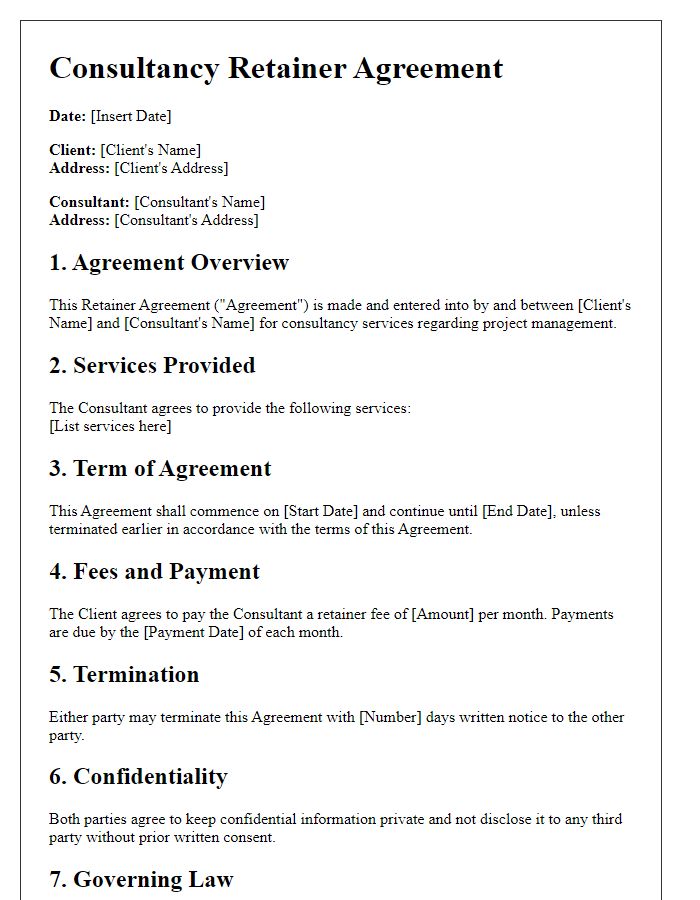
Letter template of consultancy retainer agreement for human resources consulting
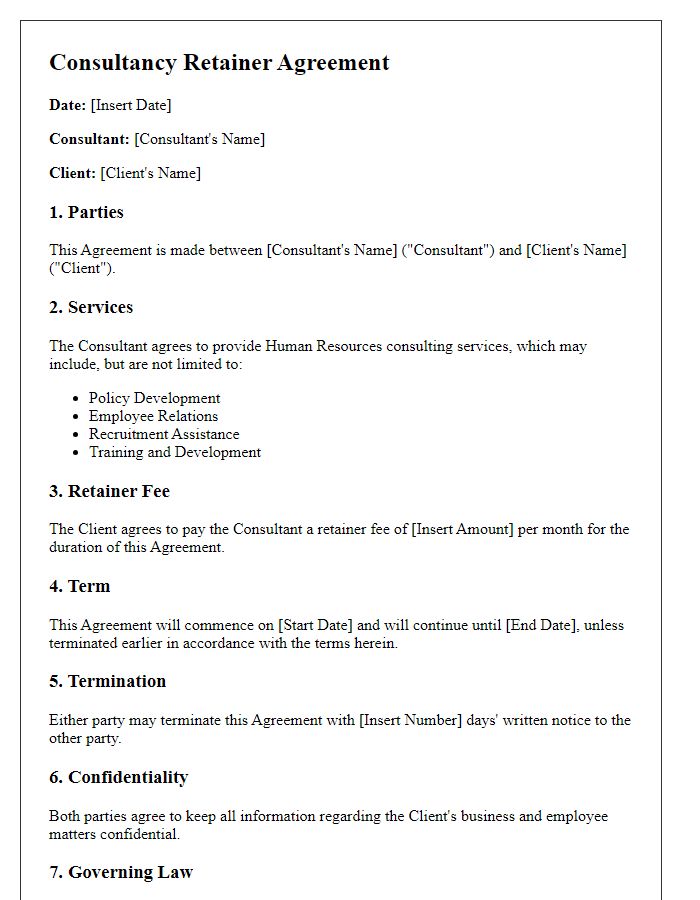
Letter template of consultancy retainer agreement for environmental consulting
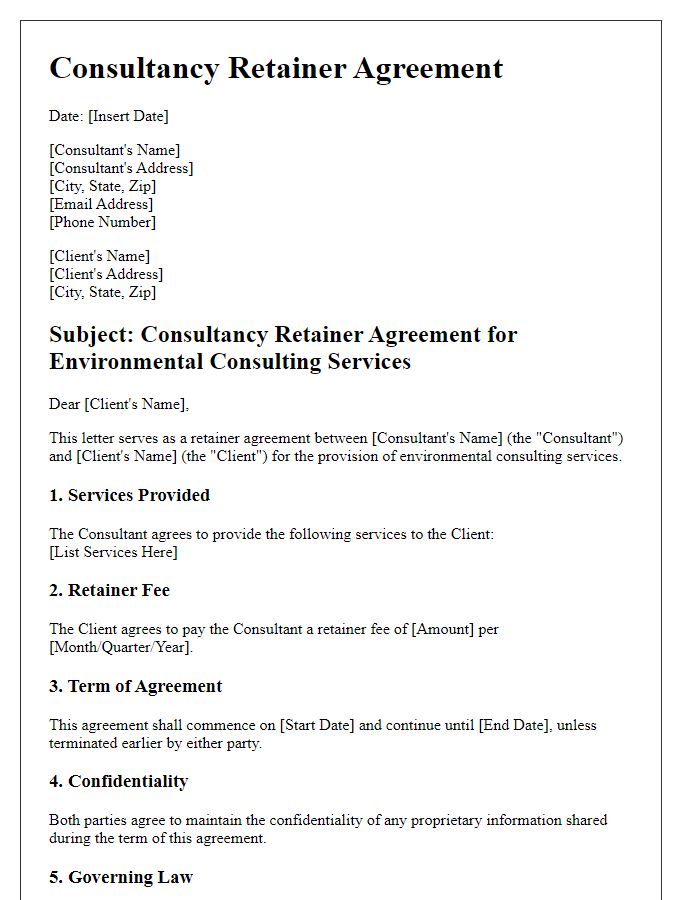

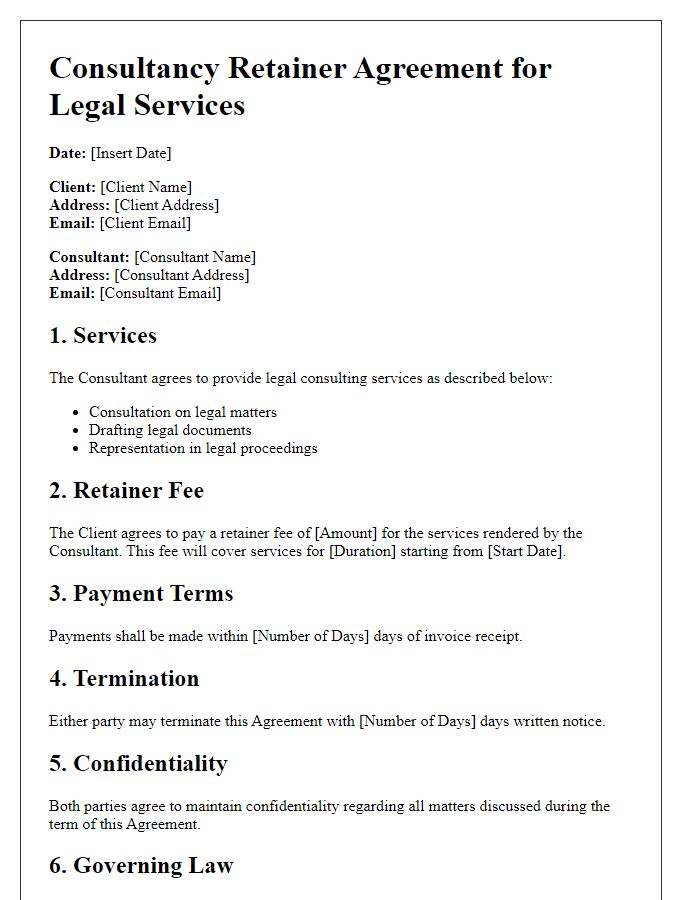
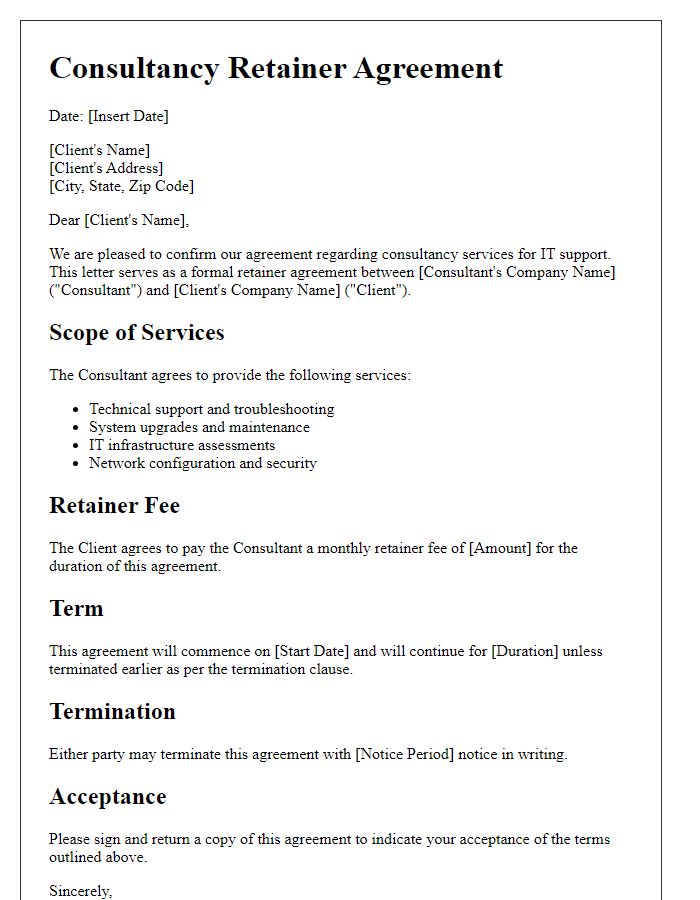
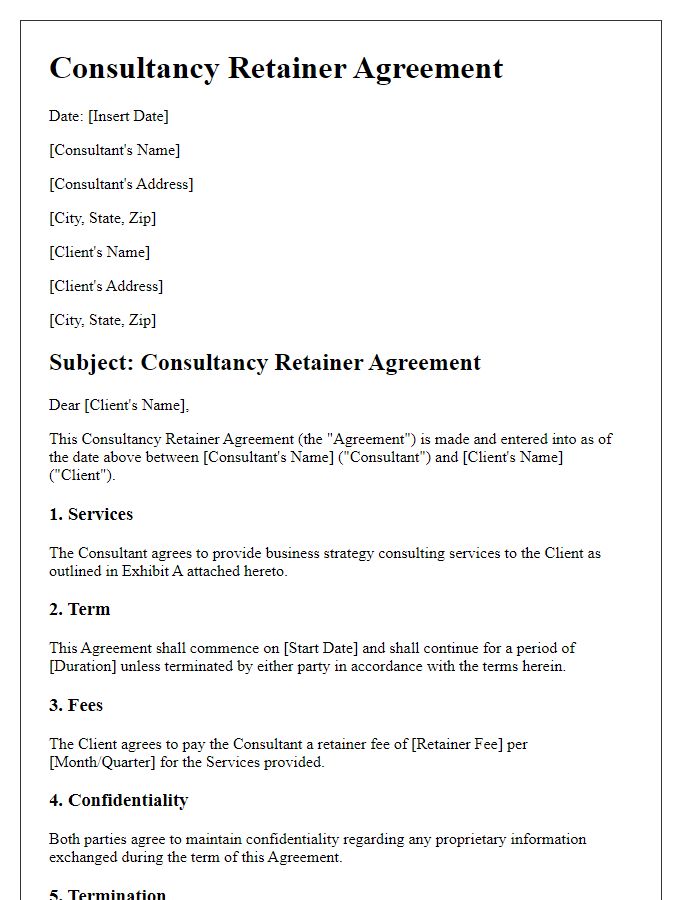
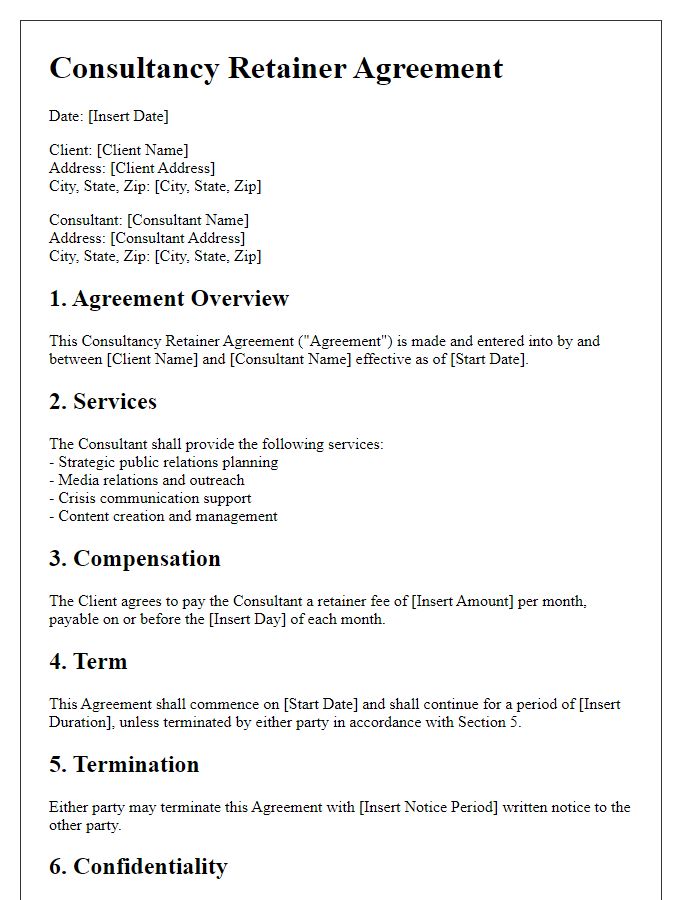
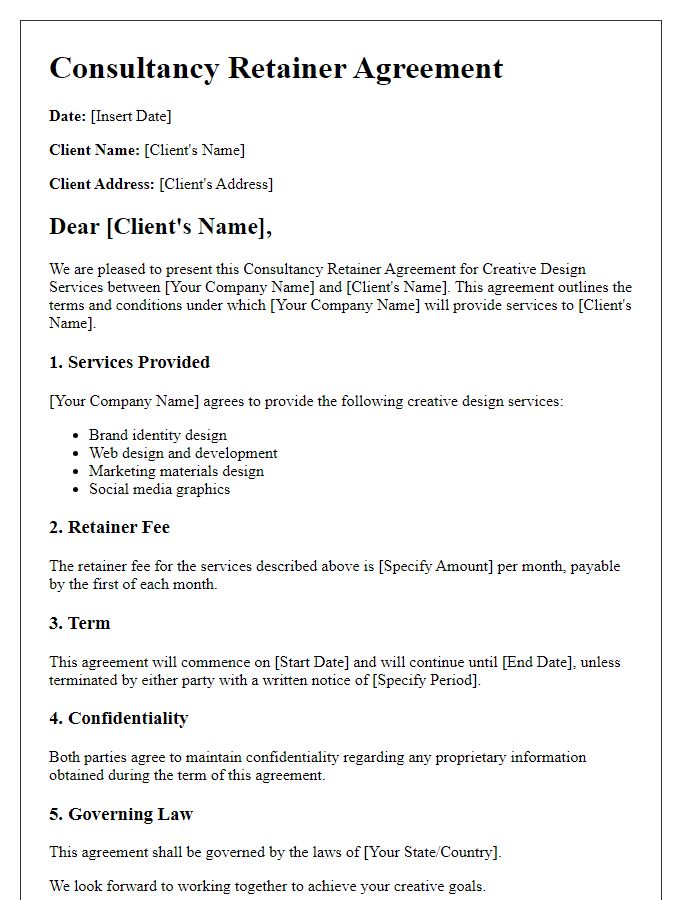


Comments